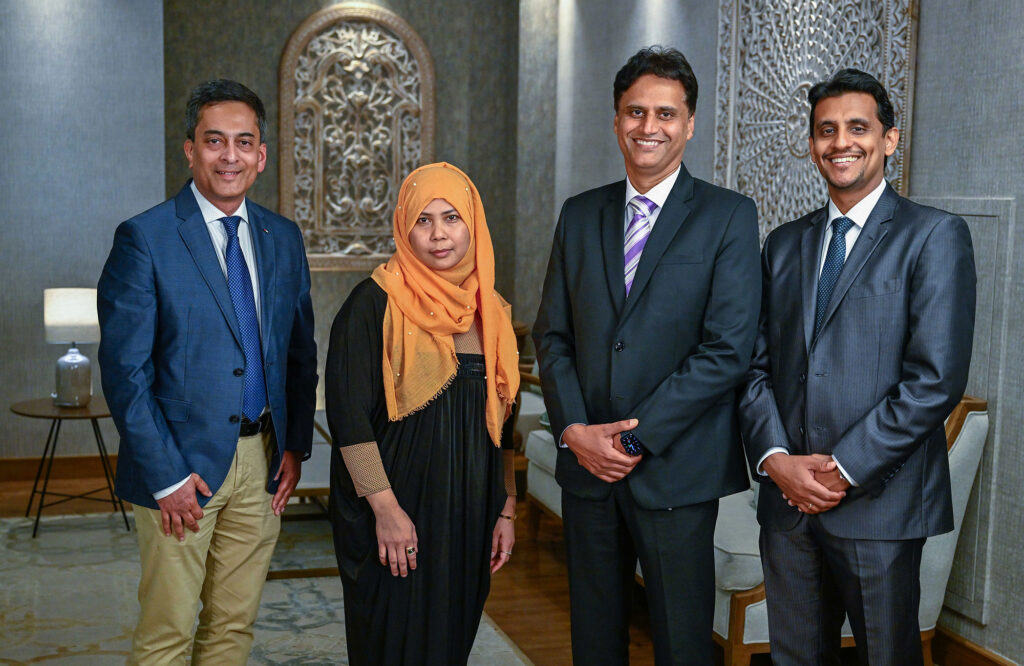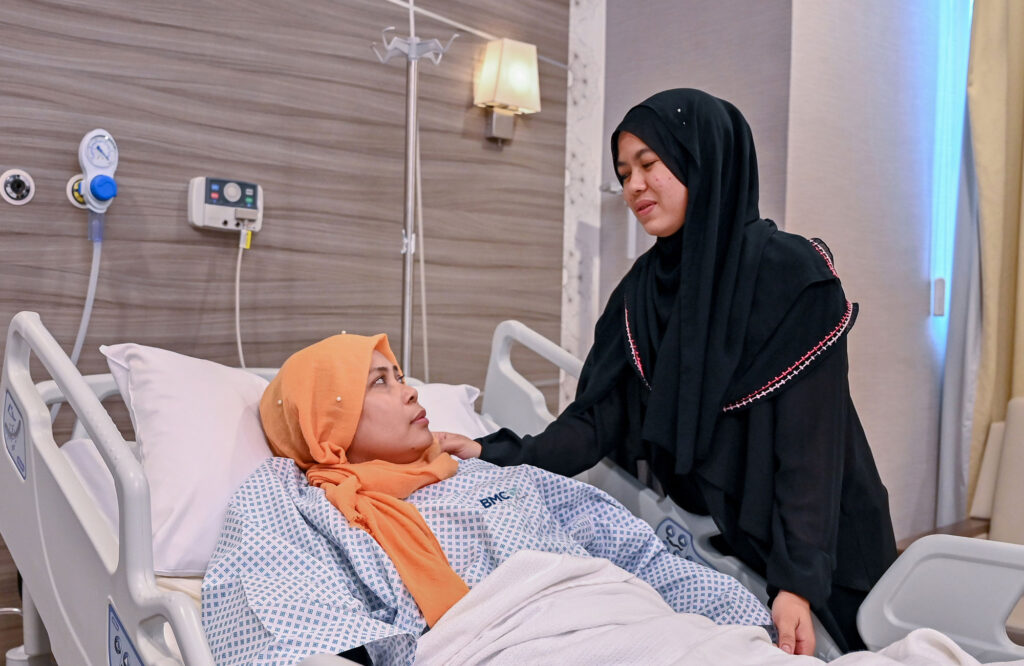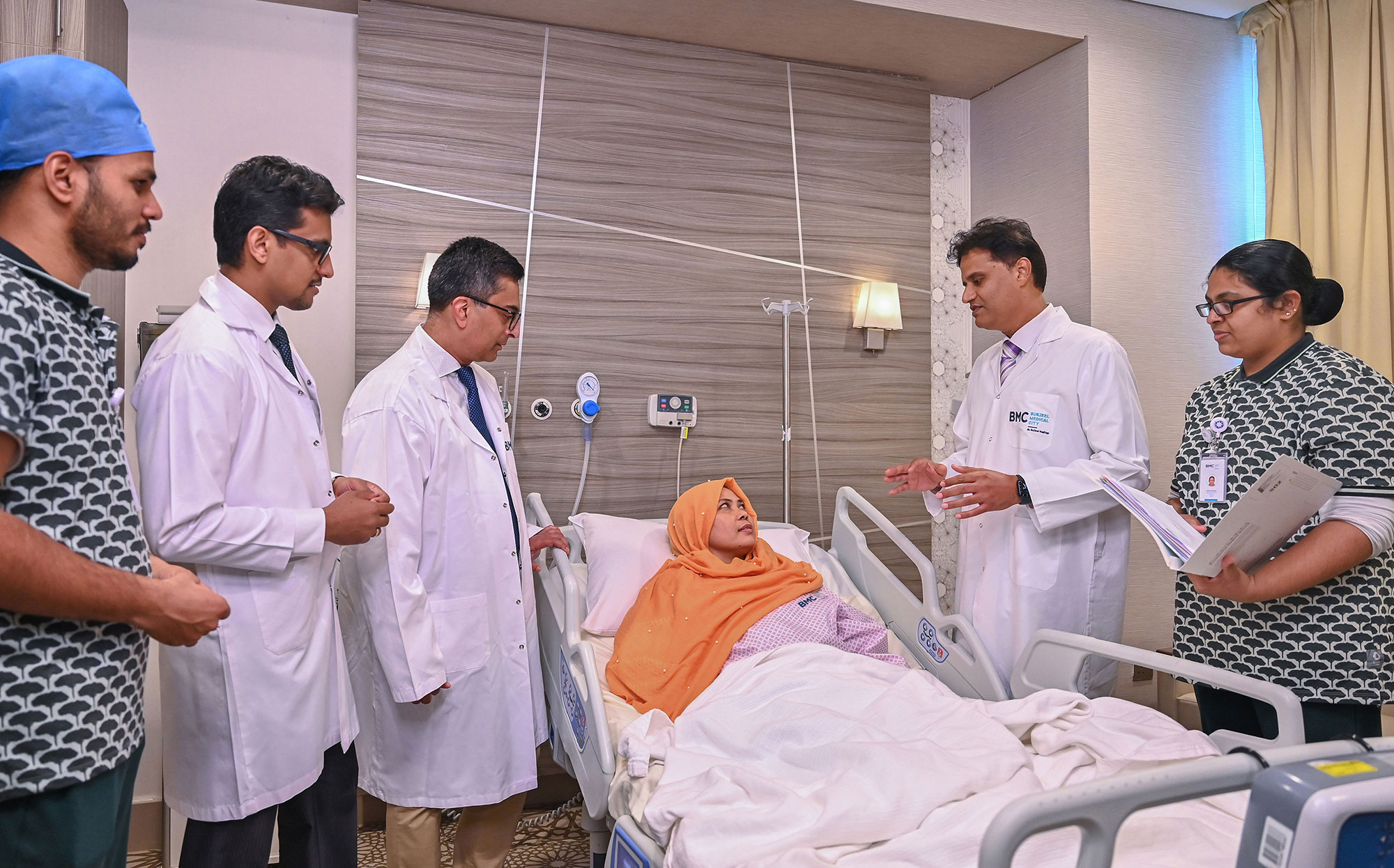Abu Dhabi: In a remarkable display of medical excellence and regional cooperation, a 43-year-old UAE resident has been given a new lease on life following an urgent liver transplant. The patient, Nur, a previously healthy Indonesian expatriate who has lived in the country for the past 14 years, suddenly developed acute liver injury, which rapidly escalated to acute fulminant liver failure. With no local donors available, a GCC-wide alert was issued, and a compatible liver was identified in Kuwait. Within a critical 48-hour window, the coordinated efforts of Burjeel Medical City, National Center for Organ Donation and Transplant at the Ministry of Health and Prevention (MOHAP), and other regional entities facilitated this life-saving procedure.
Sudden Onset of Acute Liver Failure
Dr. Rehan Saif, Director for Burjeel Abdominal Multi-Organ Transplant Program, explained the emergency nature of the case and Nur’s deteriorating condition after she was taken to the hospital. “She was brought in with acute liver injury due to seronegative hepatitis, which soon developed into acute fulminant liver failure. Managing such a condition is extremely challenging due to the rapid progression and severe complications without a transplant. The patient met the criteria for a super-urgent liver transplant requiring immediate intervention,” he said.


Immediate Action and Coordination
The hospital immediately sent an alert to the National Center for Organ Donation and Transplant for an urgent liver transplant. As no local donors were available, the center extended the search to the entire GCC region.
According to medical experts, patients with acute liver failure are at risk of severe jaundice, bleeding, encephalopathy (neurological impairment), infections and multi-organ failure.
“Jaundice had started in Nur. The acute liver failure had also started affecting her brain. This condition has a very high mortality risk exceeding 80% if a liver transplant is not performed within 48 hours once the criteria are met. So, it was crucial to find a compatible donor and perform the transplant as soon as possible,” said Dr. Saif.
Meticulous Planning and Execution
In the race against time, the turning point came when a donor liver from a brain-dead individual in Kuwait was identified and offered. Swift action was taken to facilitate the transplant. The National Center for Organ Donation and Transplant played a pivotal role by organizing a private charter aircraft to transport the liver from Kuwait to Abu Dhabi.
The complexity of the procedure required meticulous planning and coordination between multiple specialties. While Dr. Gourab Sen, Consultant General Surgery, HPB & Transplantation, traveled to Kuwait to retrieve the donor liver, Dr. Saif and Dr. Johns Shaji Mathew, Abdominal Transplant and HPB Surgeon, prepared the patient for the transplant at BMC. The liver was successfully transported from Kuwait to BMC, where the surgical team was ready to perform the life-saving procedure. Dr Ramamurthy Baskaran, Consultant Transplant Anesthesia, was also part of the medical team.
“We had to ensure that the timing was precise to minimize the ischemic time—the period the liver is out of the body. This was crucial for the success of the transplant,” said Dr. Johns.
The operation, including the retrieval and transplantation, took approximately 14 hours from start to finish.
“The main message is the crucial need for early identification of acute liver failure and timely referral to a transplant center,” emphasized Dr. Saif. “This can make the difference between life and death.”
On the Road to Recovery
Post-transplant, Nur has recovered well. She has been discharged and continues her follow-up consultations.
“She had a successful outcome and can look forward to leading a completely normal and healthy life, thanks to the graciousness of the donor’s family who donated the organ and saved her life in time. We also thank the MOHAP, the Department of Health – Abu Dhabi, National Center for Organ Donation and Transplant, Kuwait Embassy, and Abu Dhabi Airports and for their support,” added Dr. Saif.
The Emirati family the patient worked for played an important role in ensuring she received immediate medical attention and provided her support.
“She is like family to us, and we are grateful to Burjeel Medical City, medical professionals, and authorities involved in her care. The swift response and treatment she received were exceptional,” said Ms. Reem Hasan Albaloushi.
“What happened to her was a complete shock to us. However, the support and care she received from the collaborative efforts of the doctors and agencies have been incredible. She is a fighter, and we are happy to see her recovery,” said Laelatul Fitri, her sister, who flew into Abu Dhabi upon learning about her condition.
This successful transplant not only highlights BMC’s capabilities in all types of liver transplantation and its ability to handle critical medical interventions but also emphasizes the importance of regional cooperation in transplantation.


